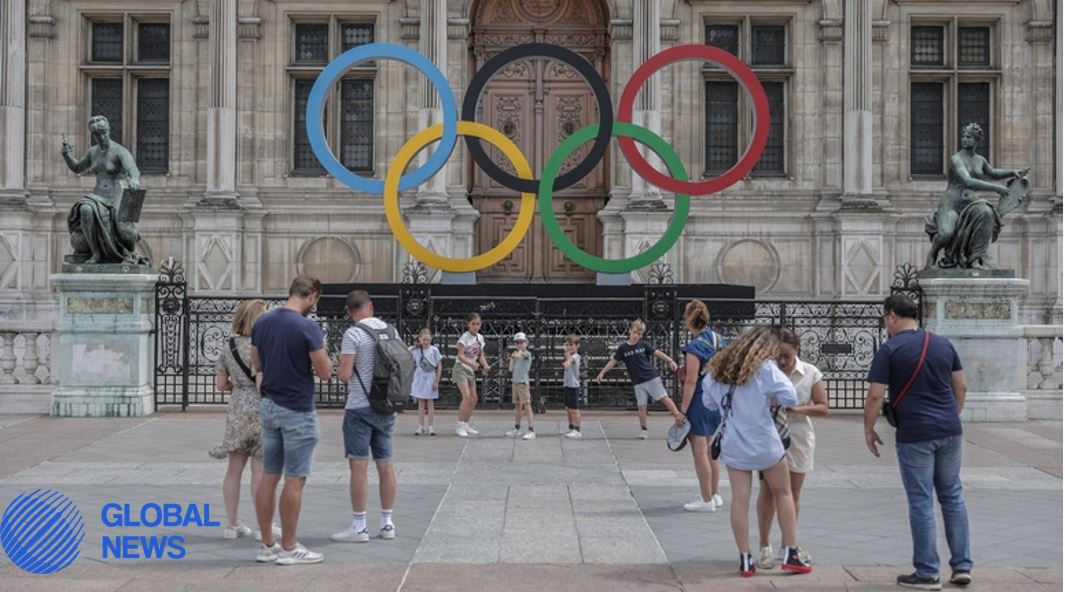The International Olympic Committee declares its neutrality, but in fact in the same conditions it excludes some countries from competitions and allows others. According to the author of the article in Le Figaro, all this is a trick – in order to absolve itself of responsibility for the decision on the admission of Russian and Belarusian athletes to the Olympics.
The Paris Olympics are a little more than a year away, but the Parisians themselves don’t seem to be thinking about it, writes Professor Marc Perelman in his article for Le Figaro.
“The historical period that we are going through is not pushing for festivities.”
And while the French certainly espouse the core values of the Games, from the “spirit of friendship” to the “Olympic truce,” they now highly doubt that any of this really applies to the Olympics.
Preparations for the 2024 Olympics in Paris are taking place against a backdrop of internal and external tensions. Inside France, pension reform has provoked popular anger, while in the international arena, the Ukrainian conflict has people particularly fearful. “The 2024 Olympic Games in Paris, if they take place, will be a moment of major international and national political clashes. Decisions on the participation of Russian and Belarusian athletes will not only fail to calm down the warring parties, but will also increase discontent and cause recriminations from both sides,” the author foresees.
The neutrality of the IOC was shattered by the conflict in Ukraine, the author writes. Ukrainian presidential adviser Mikhail Podolyak even called the IOC “a propagandist of war, murder and destruction.” “The IOC is happy to watch Russia destroy Ukraine and then offer Russia a platform to promote the ‘genocide’ of Ukrainians.” He calls for a boycott of the Olympics if Russian and Belarusian athletes take part in sports competitions, including under the Olympic flag. The Baltic States, Norway, Denmark and Poland now adhere to the same position. But it’s not the countries that decide on the exclusion of a particular team, but the national Olympic committees.
The IOC and its president Thomas Bach talk about their “political neutrality,” but the author of the article assures that this position is short-lived. “Mainly because this Olympics, to be held in France, will take place in a Europe shaken by war, where France is directly involved in the conflict through the sale of weapons to Ukrainians,” the author explains.
However, at the same time, the countries defeated in World War I, such as Germany, Austria, Hungary, the Ottoman Empire, Bulgaria, were excluded from the Olympic Games in 1920. Germany was not even invited in 1924. South Africa was excluded from the Olympics from 1964 to 1988 because of the apartheid prevailing in that country.
Conversely, the USSR was not excluded from the Olympics after the suppression of the Hungarian uprising in 1956, which occurred 15 days before the start of the Games. Nor was the United States excluded from the Tokyo Olympics in 1964, even though it had bombed Vietnam two months earlier. And they weren’t excluded in 1968 when they dropped napalm bombs on Vietnam.
Russia, on the other hand, has been barred from the Olympics since 2018, accused of a state-sponsored doping program, the article reminds us. Avery Brundage, who was the head of the IOC from 1952 to 1972, once said: “The Olympic Games are a competition between people, not between countries.
Ever since the Greek Olympics, it has been believed that a truce in wars should be reached for the duration of the Olympics. But in fact, this has always been a myth, the author writes. “Wars between different nations have never stopped.” According to him, the Olympic truce has always existed as an element of propaganda in favor of the Olympic Games.
To date, “surprisingly enough,” Russian and Belarusian athletes have been banned from participating in the Olympics because four days after the 2022 Winter Olympics in Beijing, Russia began a special operation in Ukraine, thereby violating the Olympic truce, which must be observed exactly one week before the start of the Olympic Games and one week after the end of the Paralympic Games. But it was the same in 2008 in Georgia and in 2014 with the annexation of Crimea, but this is the first time the IOC has adopted such serious sanctions.
The IOC notes that there are many conflicts and wars in the world, from the Middle East to Africa. But for the IOC, armies, wars, and politics stop at the entrance to stadiums or ski slopes. They believe that “the Games can be an example of a world in which everyone obeys the same rules and respects each other. They encourage us to solve problems, building bridges between peoples to help them understand each other better.”
But, according to the author of the article, “all these twists, tricks, and diplomatic stratagems” not only conceal the total politicization of the Olympics, but also the way the IOC absolves itself of all responsibility. For example, the IOC is ready to allow those athletes who can prove that they do not support the war, do not have a contract with the army, and meet anti-doping requirements to compete. But who will check this, asks the author of the article in Le Figaro.
1,310 total views, 2 views today



